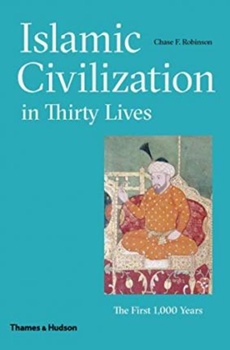Description
Religious thinkers, political leaders, law-makers, writers and philosophers have shaped the 1,400-year-long development of the world's second-largest religion. But who were these people? What do we know of their lives, and the ways in which they influenced their societies? In Islamic Civilization in Thirty Lives, the distinguished historian of Islam Chase F. Robinson draws on the long tradition in Muslim scholarship of commemorating in writing the biographies of notable figures, but weaves these ambitious lives together to create a rich narrative of early Islamic civilization, from the Prophet Muhammad to in the seventh century to the era of the world-conqueror Timur and the Ottoman Sultan Mehmed II in the fifteenth. Beginning in Islam's heartland, Mecca, and ranging from North Africa and Iberia in the west to Central and East Asia, Robinson not only traces the rise and fall of Islamic states through the political and military leaders who worked to secure peace or expand their power, but also discusses those who developed Islamic law, scientific thought and literature. What emerges is a fascinating portrait of rich and diverse Islamic societies. Alongside the famous characters who coloured this landscape, including Muhammad's cousin, 'Ali, the Crusader-era hero Saladin, and the poet Rumi, are less well-known figures, such as Ibn Fadlan, whose travels in Eurasia brought fascinating first-hand accounts of the Volga Vikings to the Abbasid Caliph, the eleventh-century Karima al-Marwaziyya, a woman scholar of Prophetic traditions, and Abu al-Qasim Ramisht, a twelfth-century merchant millionaire. An illuminating read for anyone interested in learning more about this often misunderstood civilization, this book creates a vivid picture of life in all arenas of the pre-modern Islamic world.
About the Author
Chase F. Robinson is Professor of Islamic History at the Faculty of Oriental Studies, University of Oxford. He is the author of The Legacy of the Prophet: The Middle East and Islam, 600-1300 (forthcoming), Islamic Historiography (2003) and Empire and Elites after the Muslim Conquest: The Transformation of Northern Mesopotamia (2000).
